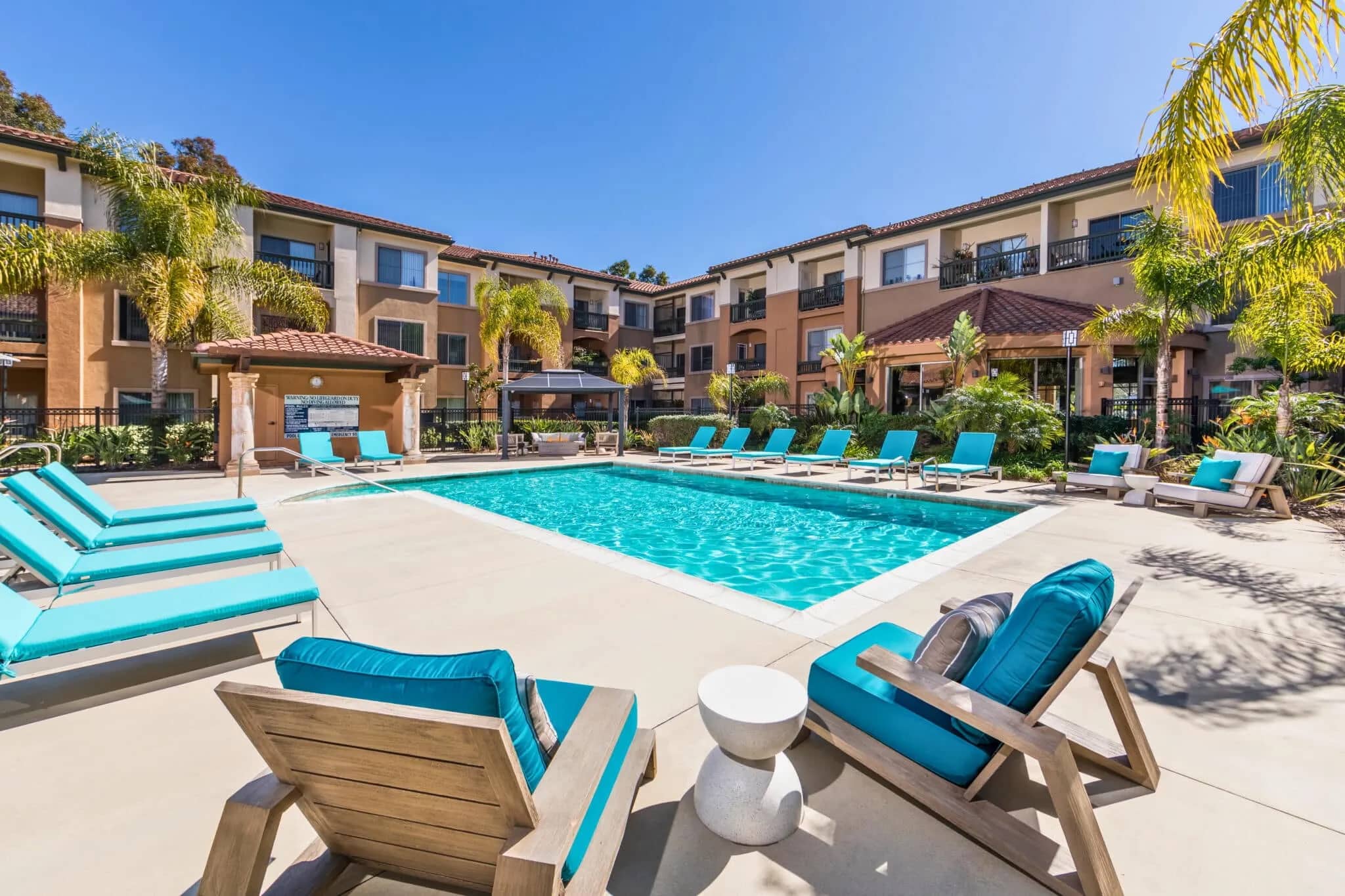New England has long been a favorite destination for retirees seeking majestic landscapes and historic landmarks. It includes six states: Connecticut, Maine, Massachusetts, New Hampshire, Rhode Island, and Vermont. This region offers a retirement different from traditional destinations like Florida. For example, fewer retirees live here and it experiences all four seasons. It’s not as much of a tourist attraction, either, but active adults appreciate the wide open spaces and sense of serenity.
Retirees considering New England weigh factors like cost of living, access to health care, recreational opportunities, and climate. While winters can be challenging, the region’s natural beauty, an abundance of welcoming small towns, and historical roots more than make up for it. Here’s a closer look at the best places to retire in New England.
Massachusetts: History and Culture
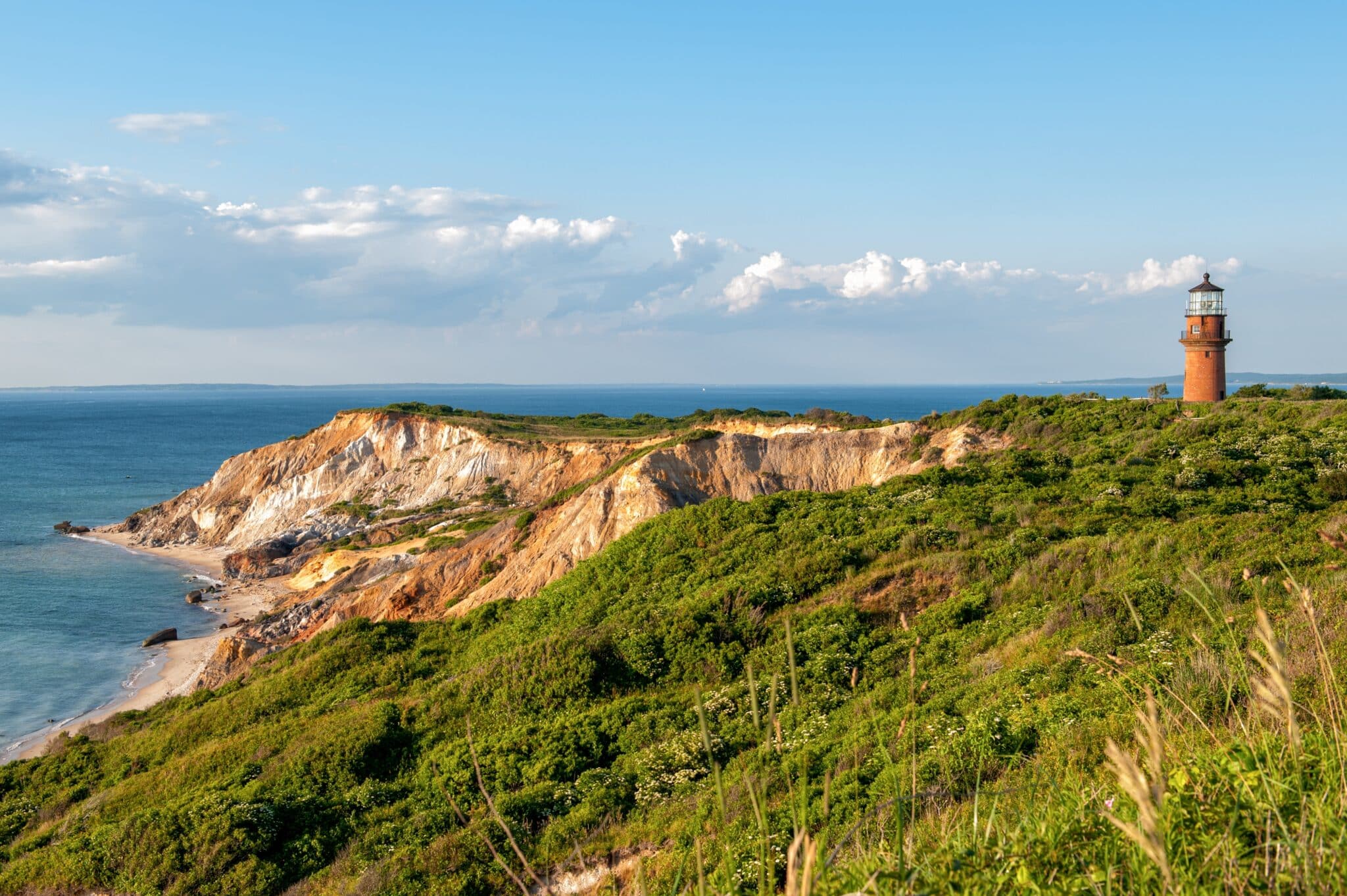
Massachusetts is home to Boston, prestigious universities, and key events in American history. It also features a diverse economy, scenic coastlines, and a blend of urban and rural landscapes. Its most-like outdoor activities include hiking, sailing, and skiing.
Known for its stunning beaches, fresh-caught seafood, and relaxed coastal vibe, Cape Cod is the classic New England retirement experience. Here, retirees hike trails, go biking, attend local festivals, and visit cool villages like Chatham and Provincetown.
Two hours inland from Cape Cod, Northampton has a thriving cultural scene for those who appreciate an artsy atmosphere. It’s also home to Smith College, numerous art galleries, live music venues, and eclectic shops.
Steeped in history, Plymouth is a fine option for retirees seeking a connection to America’s past. Waterfront living, local museums, and a quaint downtown make it a low-key, peaceful place to call home.
Massachusetts Pros & Cons
Pros
- High-quality education with prestigious educational institutions like Harvard, Smith College, and MIT.
- Access to top-tier healthcare. U.S. News & World Report ranks Brigham and Women’s Hospital, Mass General, and Beth Israel Deaconess Medical Center as the state’s top three medical centers.
- A strong job market in technology, finance, and healthcare.
- MA exempts Social Security retirement benefits.
- Its historic sites, cultural institutions, and picturesque coastal landscapes add to its appeal.
- The average high for July is 82°F.
Cons
- The cost of living, including housing and taxes, is significantly higher than the national average.
- According to SmartAsset, MA taxes other forms of retirement income
- Traffic congestion, particularly around Boston, can be frustrating.
- Winters can be chilly, with heavy snow and cold temperatures. Weather Spark reports that January is the state’s coldest month, with an average low of 37°F.
- BestPlaces posts that MA averages 47” of snow annually, compared to the US average of 28”.
New Hampshire: Low Taxes and Outdoor Beauty
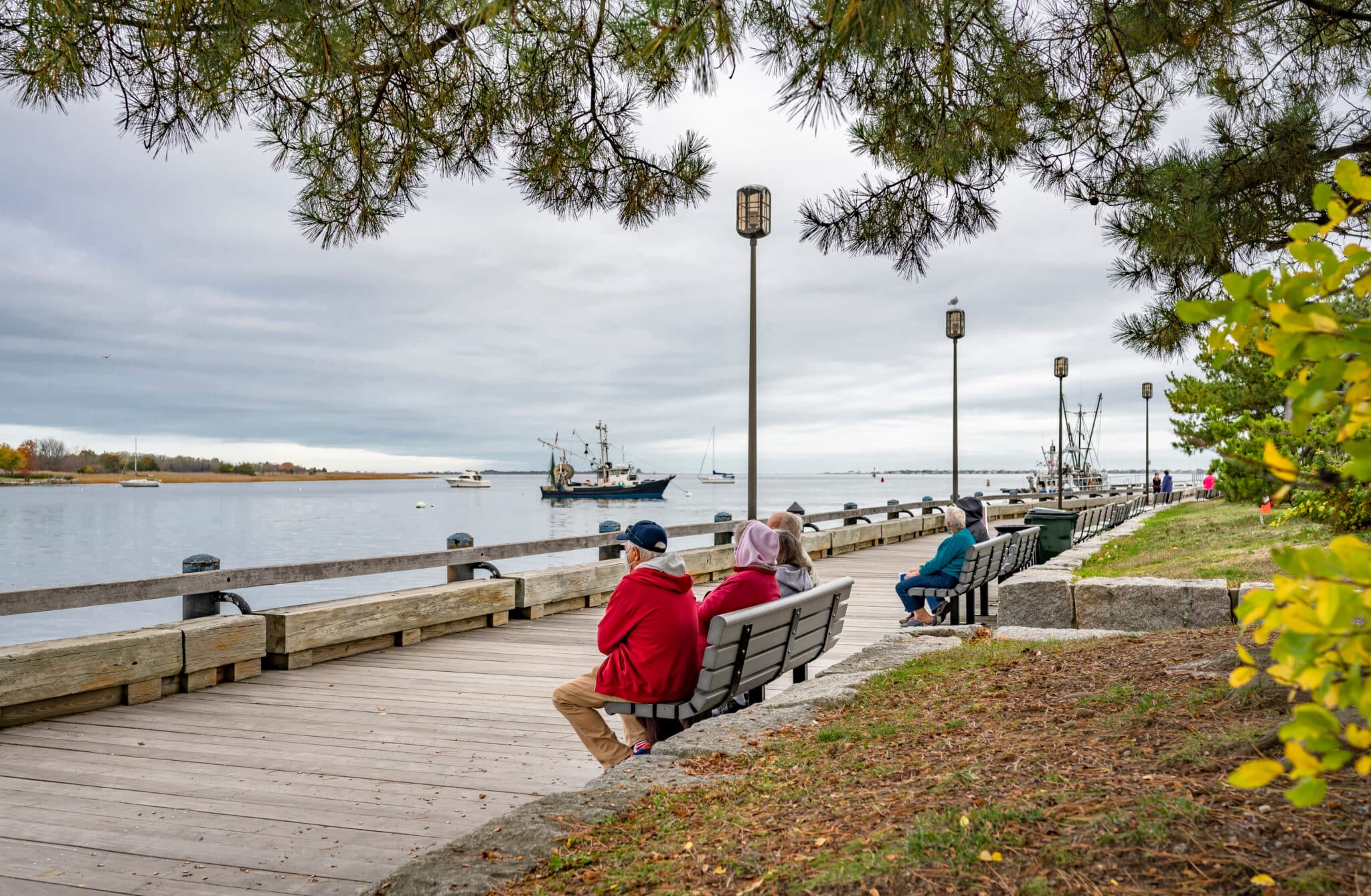
New Hampshire borders Maine, Vermont, Massachusetts, Canada, and the Atlantic Ocean, so the geography is incredibly diverse. For retirees, its appeal also lies in its tax-friendly policies. Active adults love the state’s lakes and mountains; they stay active year-round and explore charming small towns and vibrant local communities.
Portsmouth is a walkable seaside town with a lively downtown, a working seaport, and locally owned shops and restaurants. Two of its main attractions are the Prescott Park Arts Festival and the Black Heritage Trail of New Hampshire.
As home to Dartmouth College, Hanover blends cultural activities, outdoor adventures, and a collegiate atmosphere. Residents enjoy performances at the Hopkins Center for the Arts and nearby hiking and skiing opportunities.
The Lake Winnipesaukee Region is perfectly poised in east-central New Hampshire. The Lake Winnipesaukee area is in the foothills of the White Mountains. This region offers abundant outdoor activities like fishing and boating; we recommend Gunstock Mountain Resort and Paugus Bay.
New Hampshire Pros & Cons
Pros
- Smartasset shows that New Hampshire eliminated income tax in 2025.
- There is no state sales tax here.
- U.S. News & World Report lists Dartmouth Hitchcock, Alice Peck Day Memorial Hospital, and Androscoggin Valley Hospital as New Hampshire’s top three medical centers.
- Another draw is the breathtaking scenic beauty; retirees take advantage of countless boating, skiing, and hiking opportunities.
- Summer temperatures average 80°F.
Cons
- New Hampshire retirees who have investment income still pay taxes.
- The state’s heavy snow and freezing temperatures can be challenging for some. Bestplaces.net posts that NH winter temperatures plunge to 10°F.
- The average yearly snowfall ranges from 30 to 50”.
- While there is no income tax, property taxes are relatively high.
Maine: Coastal Serenity and Affordability

As the northernmost state in the country, Maine’s rugged coastline and affordable living options make it popular for retirees. The slower pace of life and natural beauty create a serene retirement experience; here, you’ll find unique outdoor recreation opportunities, awesome small towns, and rich cultural experiences.
As Maine’s largest city, Portland is a year-round playground with a coastal personality. It’s also known for its culinary scene; retirees explore cobblestone streets, boutique shops, art galleries, and a scenic working waterfront.
Bar Harbor is a haven for retirees seeking a quieter lifestyle surrounded by nature. Its proximity to Acadia National Park allows residents easy access to hiking, wildlife spotting, art festivals, and locally owned shops. The fresh seafood and breathtaking ocean views aren’t bad, either.
Kennebunkport is a postcard-perfect town known for its quaint downtown, boutique shops, and long stretches of beaches. Kennebunkport’s small-town atmosphere appeals to retirees looking for a peaceful coastal lifestyle.
Maine Pros & Cons
Pros
- Maine offers a lower cost of living than other northeastern states, making it one of the best places to retire in New England.
- Its stunning coastal beauty, fascinating towns, and relaxed pace of life attract retirees seeking a quieter lifestyle.
- U.S. News & World Report lists Maine Medical Center, Acadia Hospital, and Aroostook Medical Center as Maine’s highest-rated hospitals.
- The state is ideal for active adults, with activities like hiking, fishing, and exploring Acadia National Park.
- According to tripsavvy, Maine’s hottest month, July, averages 79°F.
Cons
- Maine’s cold winters, characterized by heavy snow and cold temperatures, can be a drawback. January is its coldest month, averaging 31°F.
- Maine Public claims the state’s limited public transportation options may present challenges, especially in rural areas. If you plan to retire here, we strongly recommend having a four-wheel drive vehicle.
- Snowfall typically starts in November and can be considerable in the more mountainous areas. The Maine Film Office posts that the state averages 50 to 70” yearly but adds that long cold spells are rare.
Vermont: Nature and Small-Town Living

Vermont offers breathtaking scenery, outdoor recreation opportunities, and a welcoming community feel. It’s well-suited for retirees who value connections to nature, small towns, local markets, cultural festivals, and a relaxed pace of life amidst stunning mountain landscapes.
Located on the shores of Lake Champlain, Burlington has an eclectic downtown and stunning lake views. It’s Vermont’s largest city; here, retirees benefit from year-round cultural events, outdoor activities, and a walkable urban environment. Its best-loved landmarks include The Flynn Center for the Performing Arts and the Burlington Bike Path.
Not to be confused with Woodstock, NY, this Wordstock, VT is in the Geren Mountains, on the Ottauquechee River. It’s brimming with covered bridges, rolling hills, and an inviting village center. There are also nearby hiking trails and ski resorts.
Drive two hours north of Woodstock, and you’ll run into Manchester, also in the Green Mountains. It’s a former iron-mining town and an all-season retirement destination, with welcoming country inns and antique shops.
Vermont Pros & Cons
Pros
- The Motley Fool posts that Vermont doesn’t tax Social Security benefits.
- Stunning scenery with vibrant fall foliage and rolling hills.
- Year-round outdoor activities like skiing, hiking, and kayaking.
- According to U.S. News & World Report, University of Vermont Medical Center and Brattleboro Memorial Hospital are the two best hospitals in the state.
- Close-knit communities with a welcoming atmosphere.
- Weather Spark shows that Vermont summers are mild, averaging in the mid-70s°F.
Cons
- 401(k) and IRA account withdrawals are fully taxable; pension income is partially taxable.
- The cost of living is above the national average.
- Higher property and income taxes compared to neighboring New Hampshire.
- Winters are cold, averaging 29°F.
- Yearly snowfall can be significant.
Rhode Island: Coastal Living with City Access
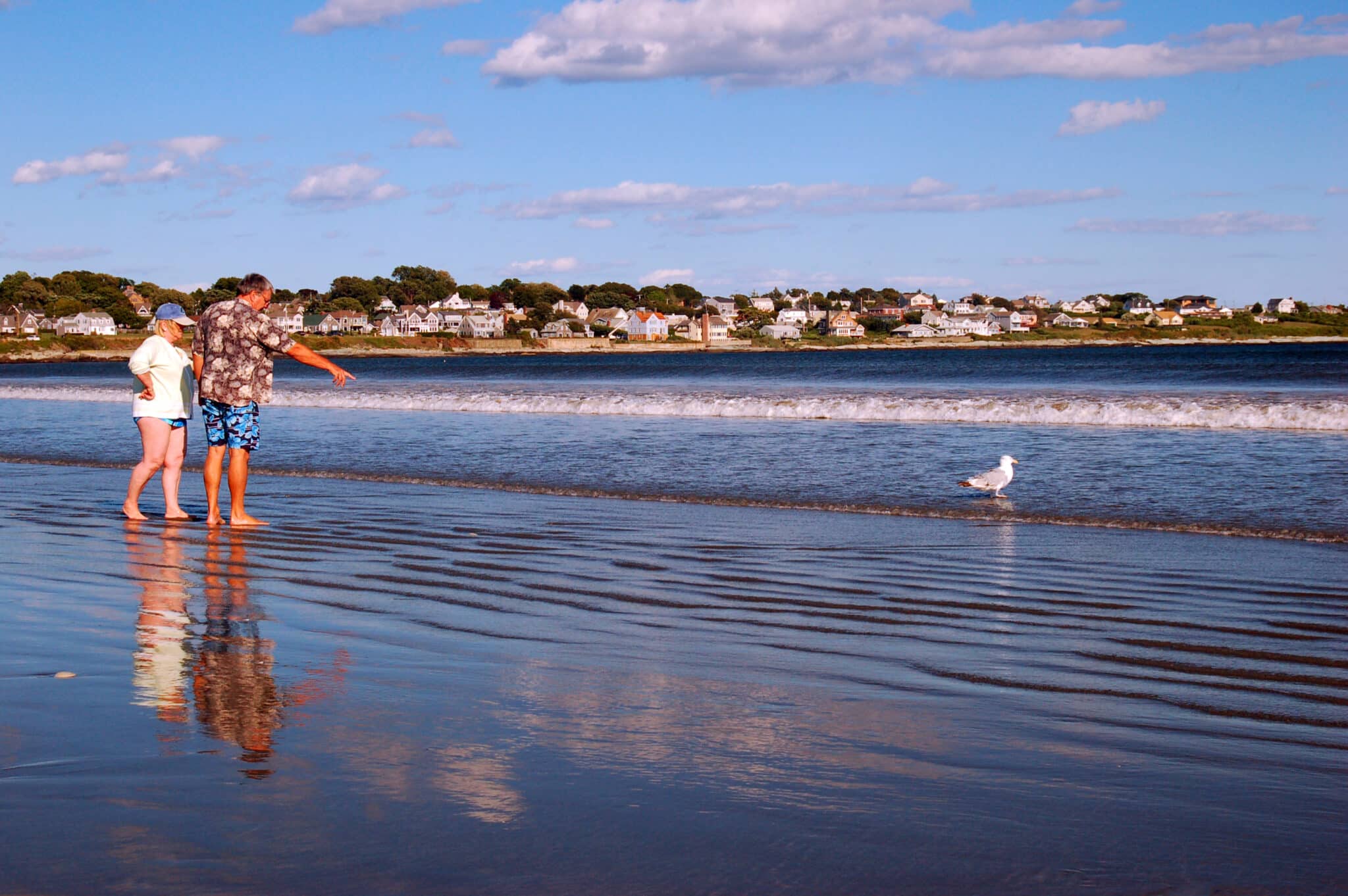
As the smallest U.S. state, Rhode Island combines the appeal of seaside living with the convenience of nearby metropolitan areas. Retirees enjoy the state’s dynamic arts scene, historical roots, and lovely coastal town. There are also charming villages, fresh seafood, and scenic waterfront views to explore.
Newport, RI’s iconic mansions, sailing culture, and oceanfront views make it a compelling choice for retirees seeking an upscale coastal lifestyle. Residents explore gilded-age mansions, watch sunsets on rooftop bars, and stroll the famous Cliff Walk.
As Rhode Island’s capital, Providence offers modern attractions with a close-knit feel. Retirees love its theaters, museums, and renowned restaurants and benefit from its manageable size. One of its most exciting new downtown attractions is WaterFire, the award-winning fire sculpture installation.
South County’s beach towns provide peaceful living, with access to sandy shores and scenic coastal views for more laid-back lifestyles. Narragansett and Westerly are two of our favorite towns here.
Rhode Island Pros & Cons
Pros
- Thriving arts and cultural scene with galleries, theaters, and festivals.
- U.S. News & World Report’s top three medical organizations in RI are Miriam Hospital, Butler Hospital, and Eleanor Slater Hospital.
- Beautiful oceanfront living with beaches and a lovely coastline.
- Its small size means easy access to all over the state.
- Rssweather shows that July is the state’s warmest month, averaging 83°F.
Cons
- Higher retirement taxes compared to other states. SmartAsset shows that retirement income is taxable, with some relief measures. Social Security may also be taxable, and property taxes are high.
- Winter storms can bring heavy snow and coastal flooding.
- Winters are cold, with average January temperatures at 20°F.
Connecticut: A Mix of Suburban and Coastal Living
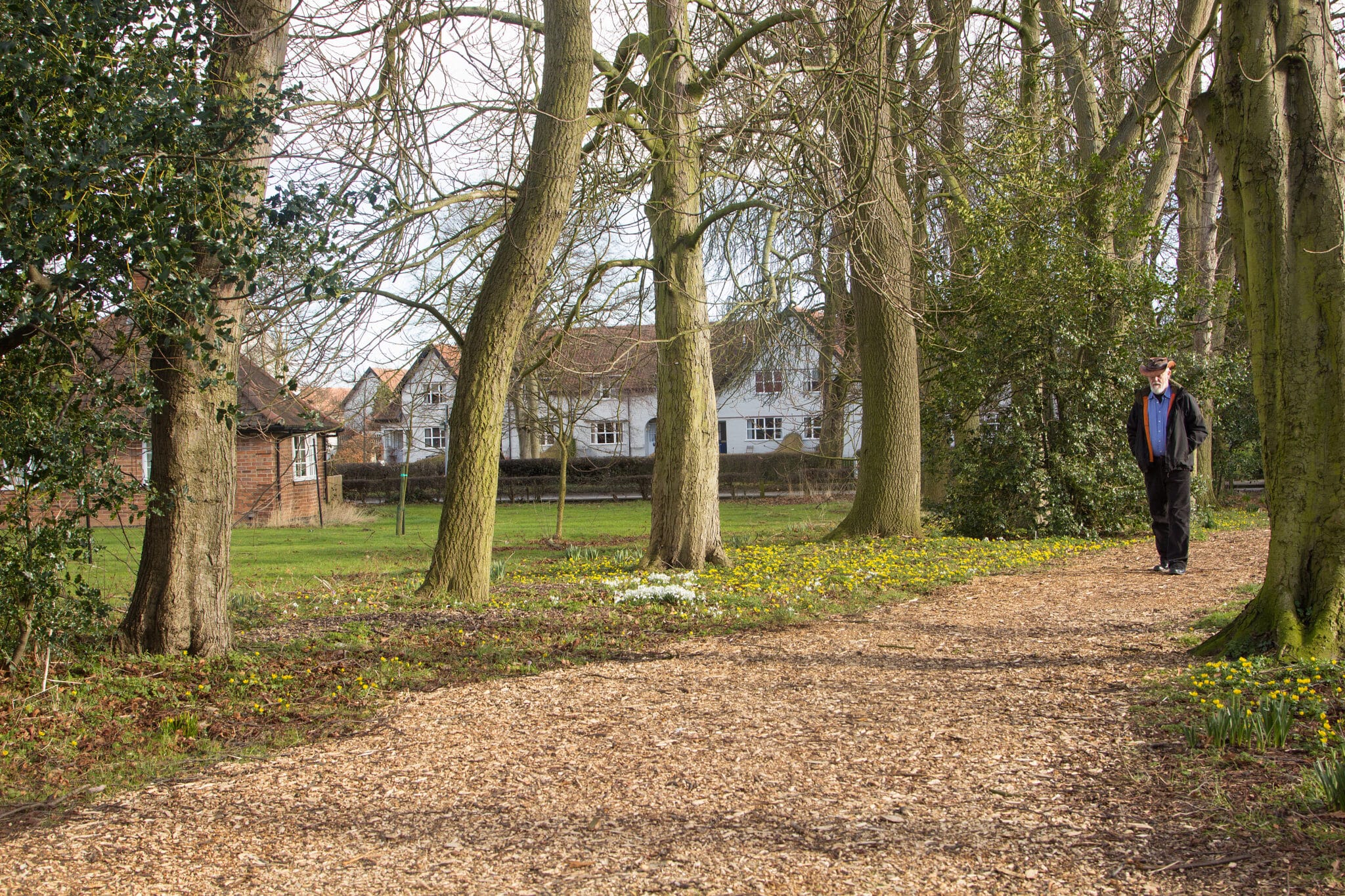
Connecticut’s diverse lifestyle options include stunning coastal towns, collegiate atmospheres, and rolling countryside. Its proximity to major cities, excellent healthcare access, vibrant cultural scene, and outdoor recreational opportunities make it a strong contender for the best place to retire in New England.
Mystic. This maritime town features a walkable downtown and waterfront beauty. Retirees visit the Mystic Seaport Museum, explore local shops, and savor fresh seafood.
Litchfield Hills. Known for rolling countryside and quaint villages, the Litchfield Hills region is a rural area dotted with historic homes, antique shops, and scenic trails.
Home to Yale University, New Haven offers a mix of cultural attractions and culinary delights. Retirees are drawn to its world-class performances at the Shubert Theater, West Rock Ridge State Park, art exhibits, and thriving restaurant scene.
Connecticut Pros & Cons
Pros
- Relatively closer to major cities like New York and Boston (New Haven is about a two-hour drive from NYC).
- Strong education system, with renowned schools and universities like Yale, Brown, and Rhode Island School of Design.
- U.S. News & World Report posts that Yale New Haven Hospital, Hartford Hospital, and St. Francis Hospital are their highest-ranking choices.
- Scenic landscapes with coastal towns, forests, and historic charm.
- The Connecticut Tourism Office posts that the state’s summer temperatures range from 60°F to 83°F,
Cons
- A high cost of living, including housing and taxes. SmartAsset posts that CT taxes retirement income, but Social Security may be exempt for some older residents. Sales tax is also high, but local rates are not.
- Notable traffic congestion, particularly near urban areas.
- Cold winters, averaging in the 20s-30s°F, with occasional snowstorms.
Considering a New England Coastal Retirement
New England’s six states show incredible diversity and a variety of retirement destinations. Coastal towns like Cape Cod and Kennebunkport provide serene seaside living, while vibrant cities like Burlington and Portsmouth offer world-class dining and cultural and recreational opportunities. Prefer a smaller-town feel? Woodstock and Mystic deliver that, plus a grounding sense of history.
When considering the best places to retire in New England, evaluating factors like affordability, climate, and access to indoor and outdoor activities is important. Whether you’re drawn to the ocean, the mountains, or the cultural hubs, visiting these potential destinations can help you determine the best fit for your retirement dreams. Contact 55places.com to find your perfect New England 55+ community.






